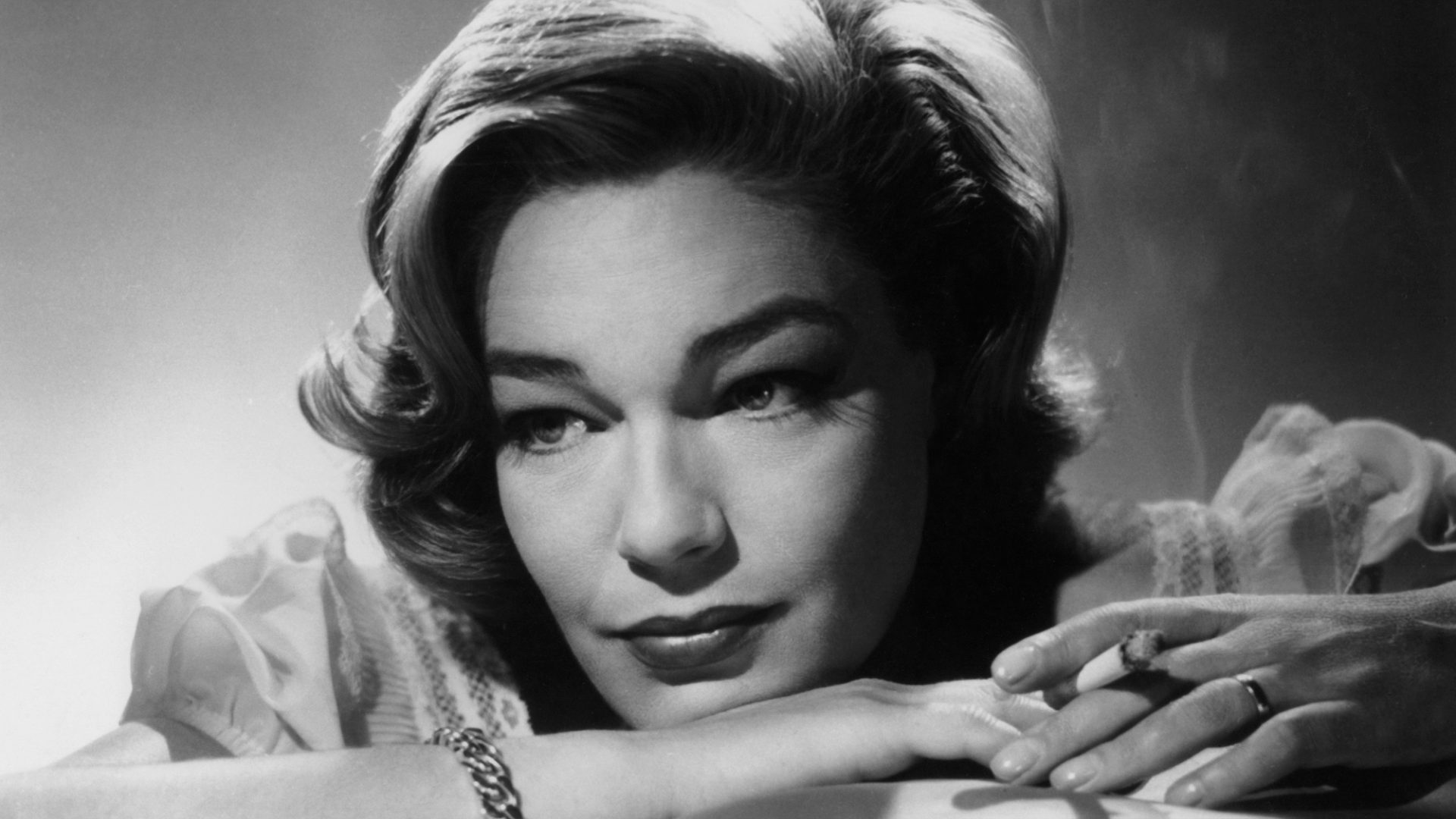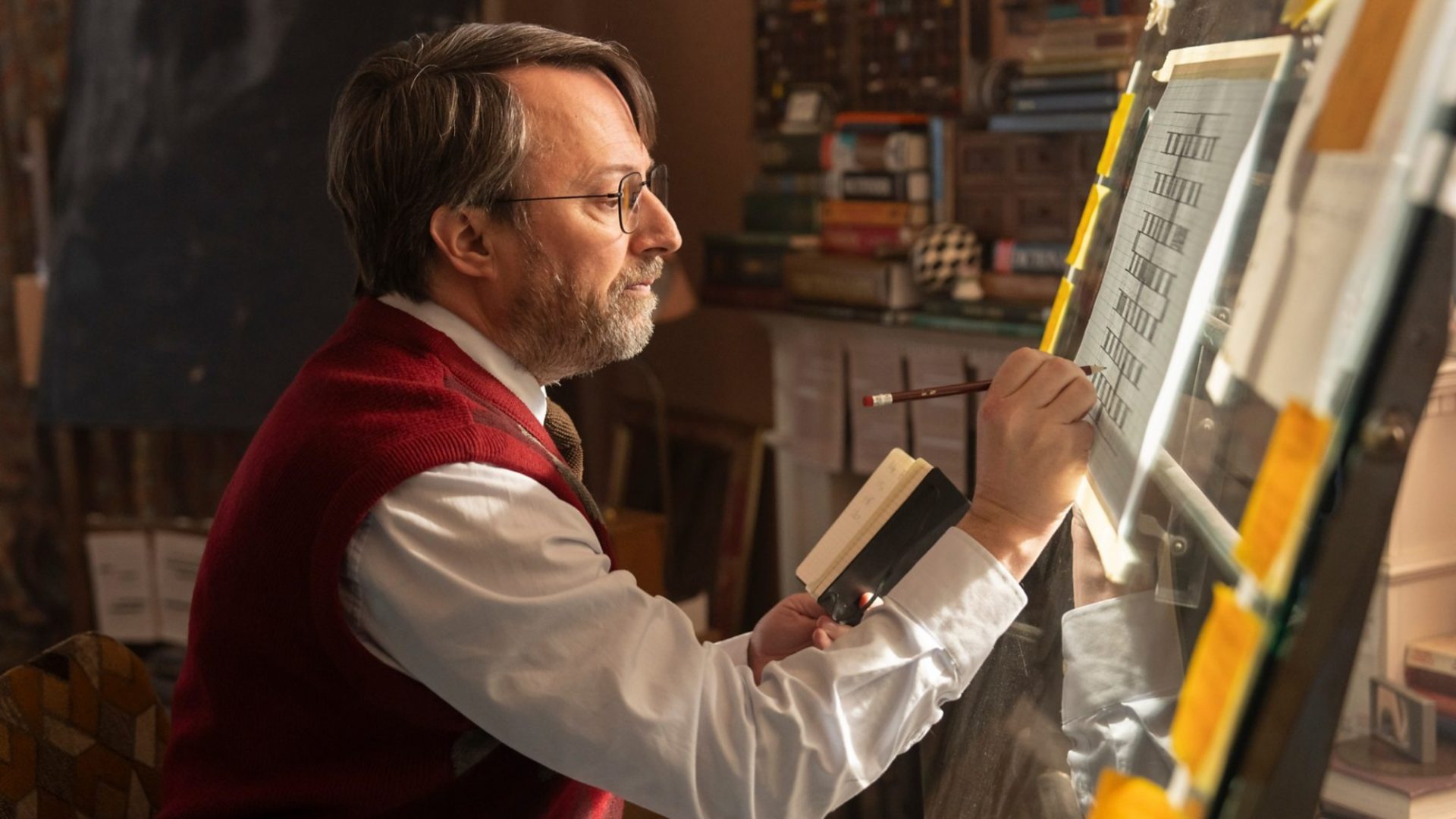MARCH 25, 1921 – SEPTEMBER 30, 1985
When, on a bright spring morning in 1958, Simone Signoret boarded La Flèche d’Or at Paris’s Gare du Nord, she had just turned 37 and not worked in nine months. At the other end of the line and across the English Channel lay what she feared could be her last cinematic hurrah.
It wasn’t long since Signoret was Europe’s greatest and most glamorous screen presence, playing wronged mistresses and sex workers in nuanced performances that wrestled with morality and heartbreak. La Ronde, Casque d’Or and Les Diaboliques were all landmark films thanks to Signoret, while her 1951 marriage to singer Yves Montand made her one half of France’s leading cultural power couple.
Yet she had committed the ultimate sin of the screen goddess – growing older. The film business was ruthless enough on that front, but a year earlier when she and Montand, always outspoken in their socialism, had made an ill-advised visit behind the Iron Curtain just a month after the brutal crushing of the 1956 Hungarian uprising, their popularity nosedived, especially in America.
When the Soviet tanks rolled into Budapest, Montand was already committed to concert dates in Czechoslovakia and the USSR and felt compelled to honour them, handing the Soviets a PR coup. The couple were paraded as honoured guests in Moscow, including dining with Khrushchev himself. Even if McCarthyism was starting to wane in the US, anti-communist feeling was strong enough to effectively blackball Signoret from Hollywood and render her contract with Warner Brothers worthless.
At Calais, Signoret transferred from the train to the cross-Channel ferry and wondered what might lie ahead. She had agreed enthusiastically to appear in the kitchen-sink drama Room at the Top, not only because she needed the work, but because the part excited her.
This was a rare romantic lead written for an older woman, “intelligent, generous, understanding, maternal, sexually liberated and socially without prejudice” as she described Alice, a Frenchwoman unhappily married in Yorkshire embarking on an affair with a young Englishman seeking to break free of his working-class background, played by Laurence Harvey.
At Dover she took the Golden Arrow to London – “once again I sniffed at that familiar mixture of lemon-scented disinfectant and Players cigarettes” – and travelled on to Bradford, wondering whether this might be the last film she ever made.
Two years later, almost to the day, Signoret was perched on the edge of her seat at the 1960 Academy Awards ceremony as Rock Hudson prepared to announce the winner of the Oscar for Best Actress.
She clasped her arms around her stomach, breathing heavily as Hudson ran through the list of nominees, reminding Signoret she was up against the might of Doris Day, Elizabeth Taylor and Hepburns Audrey and Katharine. Thankfully Hudson did not prolong the agony, opening the envelope and bellowing “Simone Signoret, Room at the Top!”
The camera cut immediately to the first Frenchwoman ever to win the award, but she was already out of her seat, almost running to the stage, arms akimbo to prevent the off-the-shoulder straps of her gown slipping to her elbows, blowing kisses to the audience as she crossed the stage to embrace Hudson and accept the award.
“You can’t imagine what it is for me, being French,” she gasped. “You can’t imagine.”
She was as French as they come, but Signoret was born in Wiesbaden, the daughter of André Kaminker, a Polish-Hungarian-Jewish translator for the League of Nations, and Georgette Signoret, to whose home city of Paris the family moved when Simone was two years old. After the German invasion, which prompted André to flee to England and join de Gaulle’s Free French Army, Signoret worked as a secretary and began spending time at the Café Flore, whose clientele of actors, writers and philosophers Signoret credited with setting the course of her life.
Through contacts she made at the cafe, Signoret – she adopted her mother’s maiden name, mostly to avoid awkward Gestapo questions at a name like Kaminker – secured occasional work as an extra, progressed to small speaking roles and eventually received her first major part in Macadam (Back Streets of Paris), a 1946 revenge caper set among smugglers in a seedy hotel in the French capital.
Her breakthrough starring role came in 1952’s Casque d’Or, a Belle Époque drama in which Signoret played the lead role of a sex worker at the heart of a love triangle in a performance that secured her a Bafta on the film’s British release.
When she won her Oscar, a post-McCarthyite thaw had allowed her and Montand to base themselves semi-permanently in Los Angeles, his singing and acting career having gained a hold across the Atlantic. When Montand was cast opposite Marilyn Monroe in Let’s Make Love, he and Signoret lived next door to Monroe and Arthur Miller.
Monroe and Montand had a brief affair, prompting Signoret to return to France, but the couple reconciled, with Signoret telling the press: “If Marilyn is in love with my husband it proves she has good taste, for I am in love with him too.”
When Monroe died soon afterwards at the age of 36, her image was frozen for ever; she would never grow old. Signoret, meanwhile, as a woman in the spotlight faced constant scrutiny as she aged, enduring snide comments in the press about how she had “allowed her face muscles to slacken” and observing she was “obviously a healthy eater”.
When she took on the role of Lady Macbeth opposite Alec Guinness in a 1966 West End production it was a disaster, her performance in particular being panned by critics. “Sorry, William Shakespeare,” Signoret wrote in her autobiography, “I won’t do it again.”
In an interview during the run of Macbeth, characteristically she addressed her situation directly. “When I enter the stage I know they have read the reviews that said I would be terrible,” she said.
“They would say, ‘here she comes, oh God, she’s older, she’s put on weight, is that a wig?’ They come to see the woman who was in Room at the Top and I am not her any more.”
For all her reservations on that journey from Paris to Yorkshire, Signoret produced remarkable performances for the rest of her life, not least in 1977’s Madame Rosa as an ageing former sex worker-turned-foster mother, which garnered global acclaim.
“I think I used age pretty well,” she said towards the end of her life. “I didn’t cling to an appearance that would have been artificial, I got old the way women who aren’t actresses grow old. The way the woman in the butcher’s shop does, a university professor, or a prostitute.”




